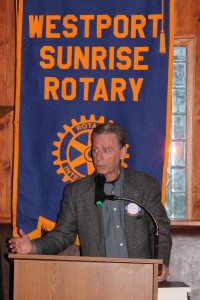Heather Graham is an internationally renowned author of more than 150 novels and novellas, published in 25 languages, with o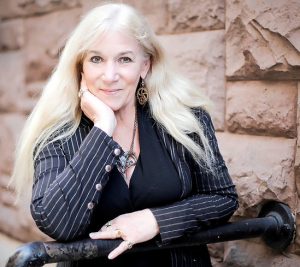 ver 75 million copies in print. She has been honored with nearly every award available to contemporary writers, including the Romance Writers of America’s Lifetime Achievement Award, and the Thriller Writers’ Silver Bullet. She is an active member of International Thriller Writers and Mystery Writers of America.
ver 75 million copies in print. She has been honored with nearly every award available to contemporary writers, including the Romance Writers of America’s Lifetime Achievement Award, and the Thriller Writers’ Silver Bullet. She is an active member of International Thriller Writers and Mystery Writers of America.
Her latest novel, Dying Breath, features Vickie Preston, who as a teen-ager, survived an attack by a serial killer. Now, Boston is being terrorized by a serial killer who kidnaps women and buries them alive. He leaves a glimmer of hope by contacting the police and sending them a clue about the victims’ locations. As a historian, Vickie has the knowledge to help uncover the graves the killer, known as the Undertaker, is choosing.
Special Agent Griffin Price, a member of the FBI’s Krewe of Hunters, the bureau’s unit for paranormal investigators, is assigned to the case. As law enforcement closes in on the Undertaker, Vickie’s every breath could be her last.
Dying Breath is a Krewe of Hunters novel. How did you arrive at a conceptualization of this series?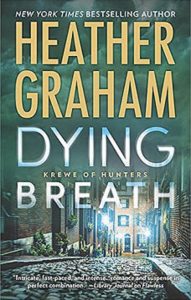
I conceptualized this group of paranormal investigators as being people with the ability to communicate on some level with the dead. The man leading the group is Jackson Crow, who was introduced in the first book of the series, Phantom Evil.
Jackson is an extremely brilliant, very wealthy man who lost his son, and who realized that although his child was dead, a line of communication remained open to him.
He went to the FBI and convinced them to start this special unit, dubbed the Krewe of Hunters, and Crow was made its field director.
For those who may not be familiar with the series, tell our readers what the Krew of Hunters is all about.
The Krew of Hunters is something of a renegade unit of people. They have the capacity to see the dead. They’ve discovered that ghosts can often lead them to the right places when it comes to solving crimes. I’m a huge history buff, so I get to tap into history when I create my ghosts, since many of them lived long ago. They have knowledge of things that happened in earlier times and often work with the krewe to solve murders.
Speaking of history, Dying Breath connects the past and present. Is the past ever truly dead?
I like to hope not. [Laughter]. We Americans have a terrible tendency to tear down history instead of acknowledging the bad things that happened in our country. We need to remember everything that has happened—the good and the bad—and not repeat our misdeeds.
In Dying Breath, the history of Massachusetts plays an important role in the story. The history of our founding fathers in Massachusetts is astounding—we had a group of men who brought about a new age of enlightenment. I agree the past is never really dead. It becomes part of us and influences us—individually and collectively—in more ways than we realize.
You’ve written more than one-hundred-fifty novels and novellas as Heather Graham, as Heather Graham Pozzessere, and as Shannon Drake. Why use different names?
I was writing in different genres—for instance, I wrote contemporary thrillers for one publisher, and historical thrillers for another. Writing them all under the same name could be a problem because I didn’t want someone buying a historical thriller who really wanted to read a contemporary thriller, or a horror or a paranormal novel. Using a pseudonym was a wise thing to do so readers preferring one genre over another wouldn’t be disappointed.
How did the name Shannon Drake come about?
The name ‘Shannon Drake’ came about because I was on the phone with the publisher who told me they wanted to publish my book under a pseudonym. I asked how long I had to think about conjuring one up and she said, ‘You have sixty seconds.’ At that point, two of my sons, Shane and Derrick, walked into the room, so I came up with the name ‘Shannon Drake.’
Tell us about your journey to become a published author.
I went to the University of South Florida and majored in theater. I then spent several years performing in dinner theater. I sang back-up for the Rhodes Brothers, who made a number of recordings at that time. I also performed in some theater performances, and bartended as well as worked as a waitress.
None of it paid very well. Auditions and dinner theater involved hours and hours away from home, and I wasn’t making enough money to make up for the time I was missing out with my children. That was when I began staying home and writing.
After we had our third child, Derrick, it was getting to be overwhelming. My husband said, ‘You always wanted to write a book…’ and he came home with a typewriter that was missing an ‘e.’ Every night, I filled in the ‘e’s on whatever I’d written. I bought a copy of Writer’s Digest and another of Writer’s Market, to which I still subscribe, and started sending things off to publishers because I didn’t know anyone in the field.
I had a couple of stories published with horror magazines, and eventually sold the first book to Dell.
I then realized my strength was writing novels with murder, mystery and mayhem. I learned if I was going to survive as a writer, I had to produce a lot of books. I learned to simply sit down and write. And write some more. The notion of having a deadline keeps the fires burning. I must say that now, I can’t imagine not writing. It’s what I absolutely adore doing. If I won the Lottery, would I stop writing? No.
Were there early influences in your life that sparked your interest in writing?
My father and mother came from Scotland and Ireland respectively. They left very tough circumstances and arrived in the U.S. My parents read everything. My mother loved Gothic novels and mysteries of all kinds; my father loved reading anything that had to do with water and the navy. They were both huge fans of Edgar Allen Poe.
As a child, I was a voracious reader. I don’t ever remember not having a book in my hands. When I began writing, the popular industry notion of something being strictly one genre surprised me. That concept has changed over time, and now many popular books straddle various genres.
You’re immensely prolific and write in many genres. Do you have to switch your frame of mind to write a suspense novel after a Gothic tale or a paranormal, or vampire story?
I really don’t switch gears to enter into a different genre. It’s just a matter of thinking about whatever it is I’m writing. For me, it’s similar to this: if I’m reading a Jack Reacher novel, I expect a lot of excitement and action; if I pick up a Lisa Scottoline book, I expect a courtroom drama. I have no trouble going from one genre to the other. I find myself simply thinking in whatever direction I’m writing. Maybe it’s the way I grew up—reading everything—and now, I just like writing everything. I love reading everything, too. If I have nothing to read, I’ll read the cereal box.
You’ve been a performer and a writer. How has each of these been gratifying?
I’m the luckiest person in the world to be able to do something I love so much for a living. In itself, that’s been gratifying. People have been wonderful to me. I’ve been on a USO tour with other writers and have gotten to experience so many things that have been a pleasure to do. As for the performance part of my career, we still have a little dinner theater skit every year at the Romantic Times convention, and I’m still a member of the Slush Pile Band. [Laughter]. We chose the name ‘Slush Pile’ because we were all lucky enough to get pulled out of that place.
With over one-hundred-fifty books out there, procrastination must be a foreign concept for you.
It is, because writing is how I make my living. It’s what I do. I’m always busy, even though the kids are older—I now have grandchildren—and I belong to all these different writing groups: horror writers, mystery writers, thriller writers and romance writers’ groups. So, I just keep going.
What’s a typical writing day like for you?
I don’t think I have a typical day, and never did. I had five children in the house, and I learned to write anywhere at any time—in a car, on a train, anywhere. I grew accustomed to a lot of commotion around me so I can work anywhere.
If you could host a dinner with any five people, real or fictional, living or dead, from any walk of life, who would they be?
I only get five? [Laughter]. Historically, I would love to have Abraham Lincoln and Jefferson Davis over for dinner. Can you imagine their conversation? I would love to invite Edgar Allen Poe, who’s my ghost in the third book of the Krewe of Hunters. I’d invite Charles Dickens because A Tale of Two Cities is one of my favorite books. I’d also love to have Michael Shaara who wrote The Killer Angels, which is more about the relationships between people than about the Civil War. If I could have one more person it would be Vincent Price. I love him.
Congratulations on penning Dying Breath, a great addition to the Krewe of Hunters series, a heart-stopping story with elements of the paranormal in a supremely suspenseful read.





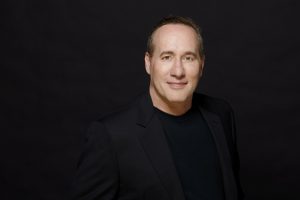
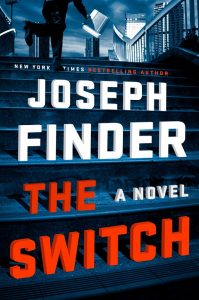
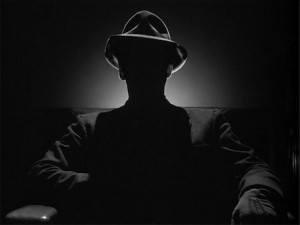 I recently read
I recently read 